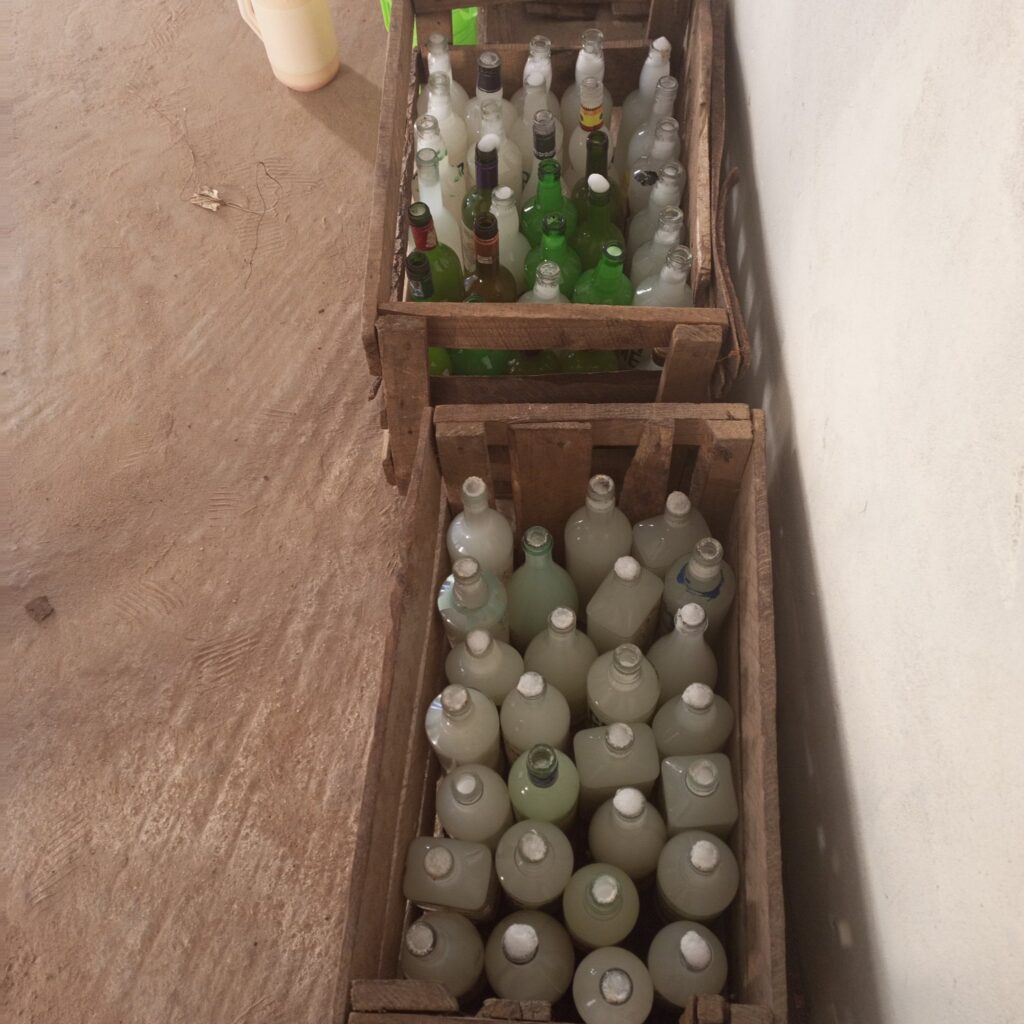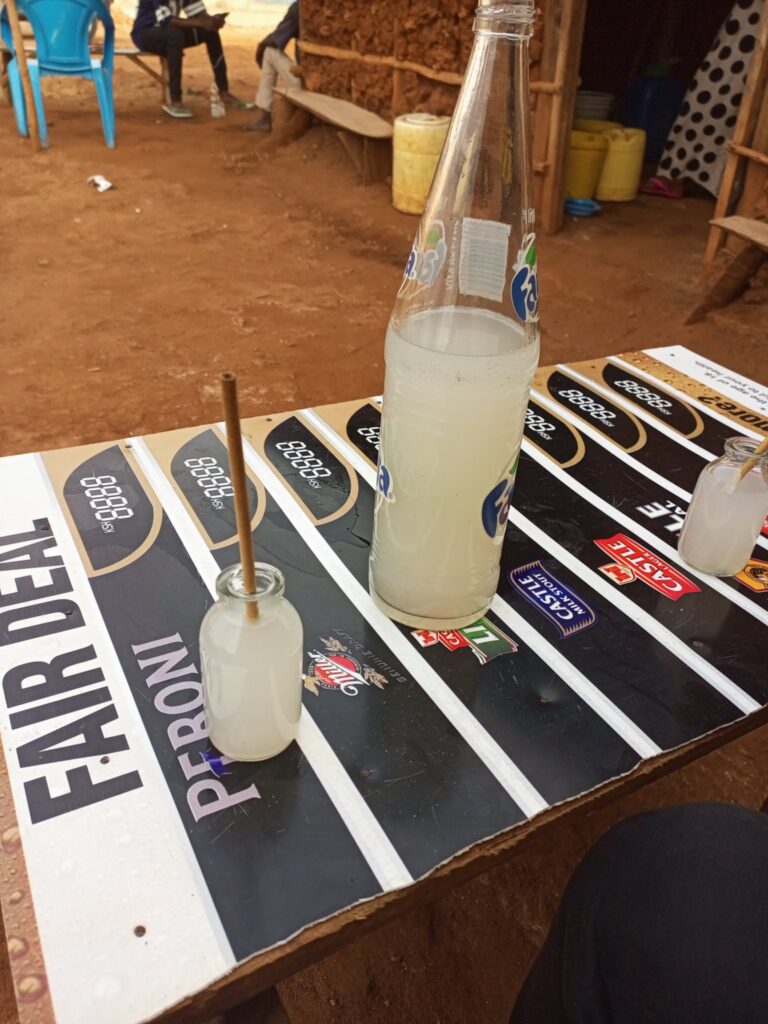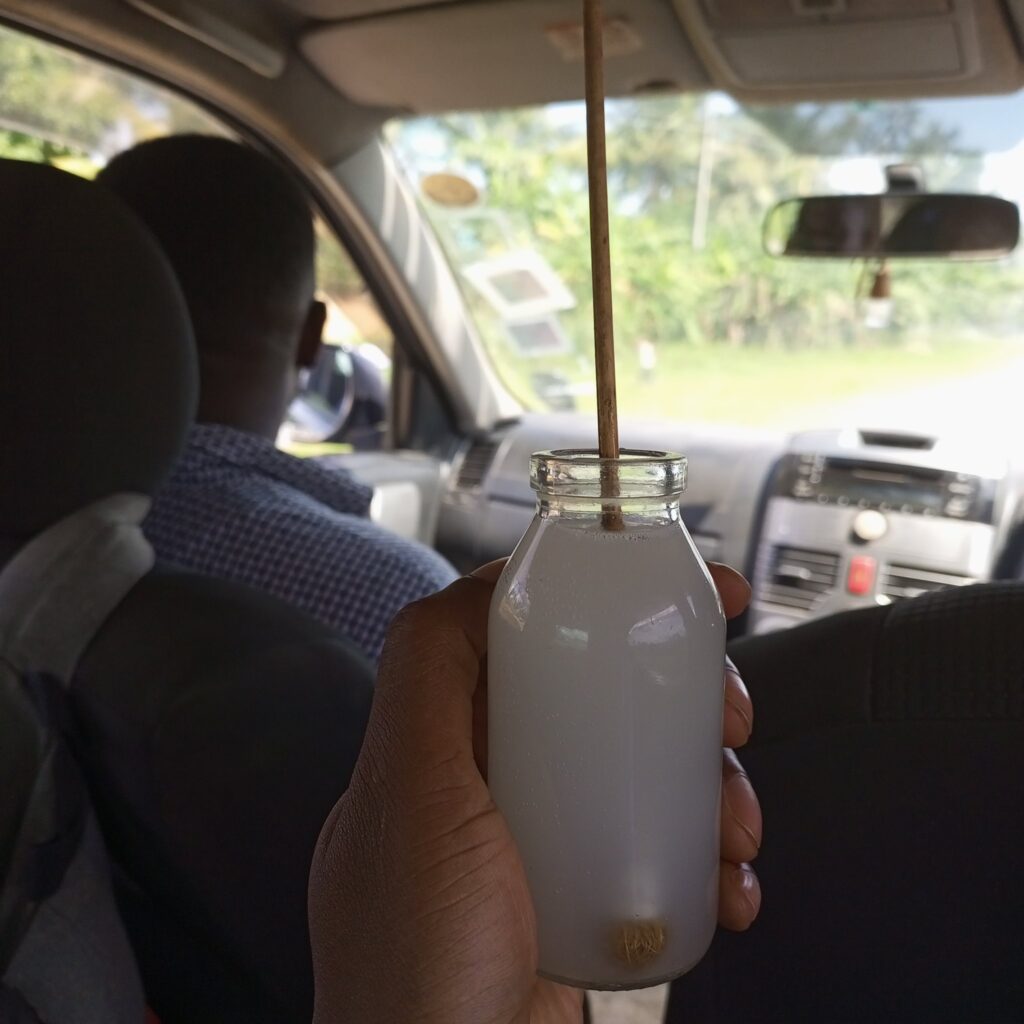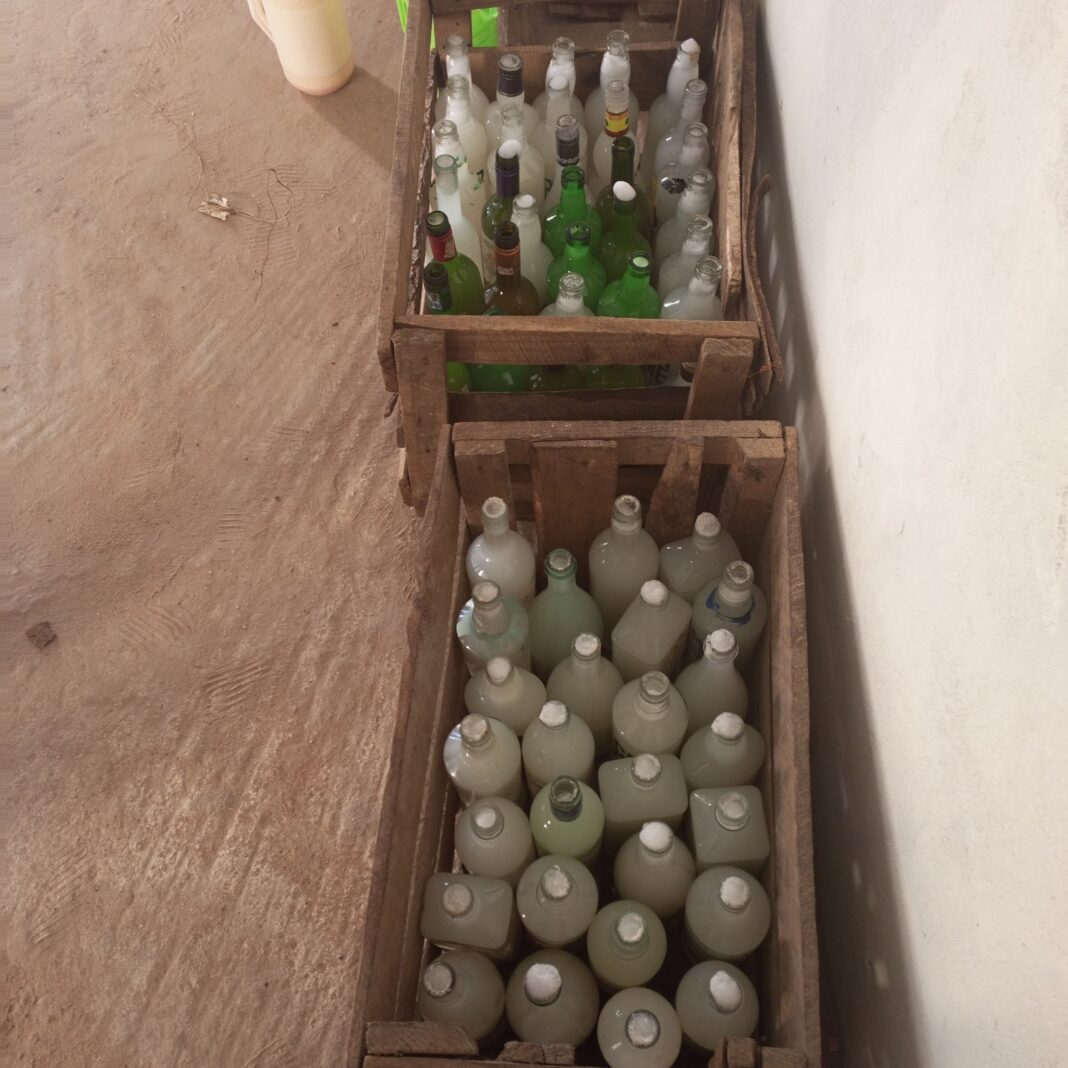Last year, I joined the palm wine/mnazi trade as a trader after being keen on it for a while. It has given me a lot of insight on wagema, wahudumu, mnazi partakers and patterns of the trade. It has been both a cultural and comical journey, with fascinating friends made along the way.

For a start, you can not claim to be in the mnazi business in Kilifi and environs if ‘kilalo’ (palm wine that is advanced in the fermentation process) is not in stock. Comparatively, ‘fresh’ (palm wine tapped on the same day) is preferred more in ‘mangwe’ (local name for palm wine joints) from Shanzu to Mombasa. I guess because those areas have more partakers from ‘upcountry’ and kilalo takes a bit of getting used to, which locals have a headstart with. A matter of tastes and preferences. For some reason, the units of mnazi bottling differ too in the above mentioned areas. In Kilifi and environs, ‘chupa’ is the normal measure, 750ml, from used wines/spirits bottles. In Mombasa and environs, ‘dabali’ which is a 1 litre bottle, is the normal measure.

You need more than one ‘mgema’ (palm wine tapper) as your supplier. This is because most wagema tap mnazi from coconut trees other than just theirs. The arrangement is mostly tapping on alternate days between wagema and coconut tree owners. The owners saving it for themselves on favourable days. Favourable days being weddings/funerals in the locality. Funerals are big for the mnazi trade around Kilifi. Mangwe witness a dip in clientele when there are funerals around. To counter, most mangwe will have some wahudumu go with some of the mnazi and sell from the funeral venue.
On wahudumu, you can never be prepared for the high attrition rate. Not because you are a bad employer, it is just a culture. Payment terms are mostly similar. My friend Sundell told me, “Wakikupatia ata wiki tatu za kazi, shukuru tu”. The common Kenyan households outcry on househelps not coming back after Christmas does not even come close to the wahudumu attrition rate. Also, be at peace, with wahudumu finding ‘love’ at your business premises and some of your clients ‘eloping’ with them. It is a common script you will have to accept. You will have returnees in case the love turns sour. I realized I was in both the mnazi trade and matchmaking business.

Thinking of stocking the glass ‘mboko’ (the typical palm wine drinking apparatus)? Don’t. They will be pocketed. Proceed if you have no issue constantly restocking them. On entertainment, you have to play Mwanzele music. If you do not have a Mwanzele mix, allow revellers to connect their playlist. Mangwe revellers are very particular about their music. Radio waves might ignore Mwanzele but the likes of Mr. Bado and Nyerere Junior are kings of the mangwe. Where they play, sales hit peak figures. Culture is alive.
Finally, always have a grill, jiko and someone ready to prepare anything from fish, offal meat, marondo (livestock limbs), goat heads, cow heads to chicken and ducks. Mnazi drinking is not the same without those kinds of ‘local’ bitings. A big positive of the trade is I have been at the fore-front witnessing a shift in mindset among those working in the big cities. Quite a number have embraced the full mudzini (home) experience to unwind every other weekend, away from the busy city life and loud crowded bars and night clubs. The improved Mombasa-Kilifi road network will only increase this.



